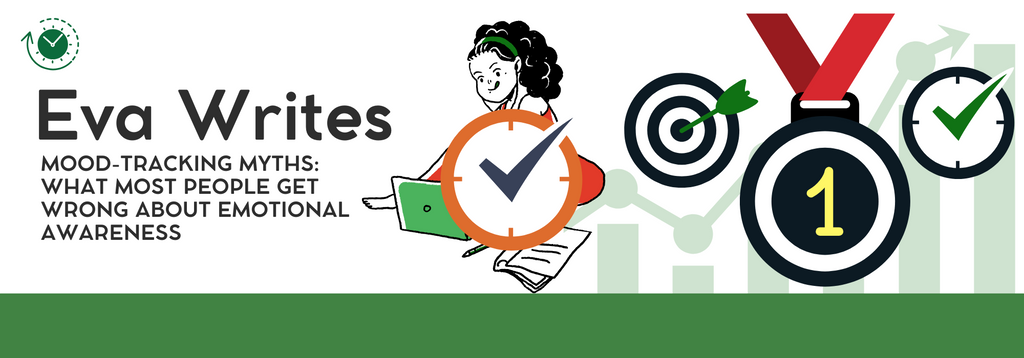Mood-Tracking Myths: What Most People Get Wrong About Emotional Awareness

Mood-Tracking Myths: What Most People Get Wrong About Emotional Awareness
Tracking your mood is a powerful way to understand your emotions, but many misconceptions prevent people from making the most of it. From believing mood tracking is only for those struggling with mental health to thinking it’s too time-consuming, these myths hold people back from unlocking its full potential. In this blog, we’ll debunk common misconceptions about mood tracking and highlight how it can benefit anyone looking to improve self-awareness, productivity, and overall well-being.
1. Myth: Mood Tracking is Only for People with Mental Health Issues
Truth: Everyone Can Benefit from Mood Awareness
Mood tracking is not limited to individuals dealing with anxiety or depression. Understanding daily emotional patterns helps anyone make better decisions, improve relationships, and boost productivity. Even high-performing individuals, including athletes and executives, use emotional awareness to optimize their performance.
Actionable Tip: Start tracking your mood with simple tools like the FREE Mood Tracker to gain insights into your emotional trends.
2. Myth: You Need to Track Your Mood Constantly for It to Work
Truth: Consistency Matters More Than Frequency
You don’t need to log your emotions every hour. A simple daily check-in is enough to spot patterns over time. The key is being consistent rather than obsessive.
Actionable Tip: Use a printable habit tracker like The Ultimate Printable Habit Tracker to include mood tracking in your routine without feeling overwhelmed.
3. Myth: Mood Tracking is Too Time-Consuming
Truth: It Can Be Done in Less Than a Minute
Many believe mood tracking requires detailed journaling, but it can be as simple as rating your mood on a scale of 1-10. With modern tools like apps and digital planners, tracking takes only a few seconds per day.
Actionable Tip: Set a daily reminder to log your mood and jot down a few words about what influenced it. The act of tracking itself helps build emotional intelligence.
4. Myth: Tracking Your Mood Won’t Change Anything
Truth: Awareness Leads to Positive Change
By regularly monitoring your emotions, you can identify patterns, triggers, and opportunities for improvement. Many people don’t realize that recognizing emotional fluctuations helps them take proactive steps toward balance and well-being.
Actionable Tip: If you notice certain activities consistently improve your mood, make them a priority in your schedule.
5. Myth: Mood Tracking is Only About Emotions
Truth: It Also Helps Track Productivity and Lifestyle Patterns
Your mood is closely linked to your habits, productivity, and overall lifestyle. Tracking your emotions can help you pinpoint what boosts or drains your energy, leading to better time management and goal achievement.
Actionable Tip: Combine mood tracking with financial planning using the Family Budget Planner to see how financial stress impacts your well-being.
Conclusion
Mood tracking is an effective tool for enhancing self-awareness, improving decision-making, and fostering a more balanced life. By debunking these common myths, it becomes clear that anyone can integrate mood tracking into their daily routine with minimal effort. Whether you use a simple journal, a digital tracker, or a comprehensive habit planner, understanding your emotions is the first step toward positive change. With consistency, even small insights can lead to significant improvements in your mental clarity, relationships, and productivity. Start tracking today and experience the transformative power of emotional awareness.
-
Posted in
#Focus, #Growth, #Habits, #Motivation, #Success







